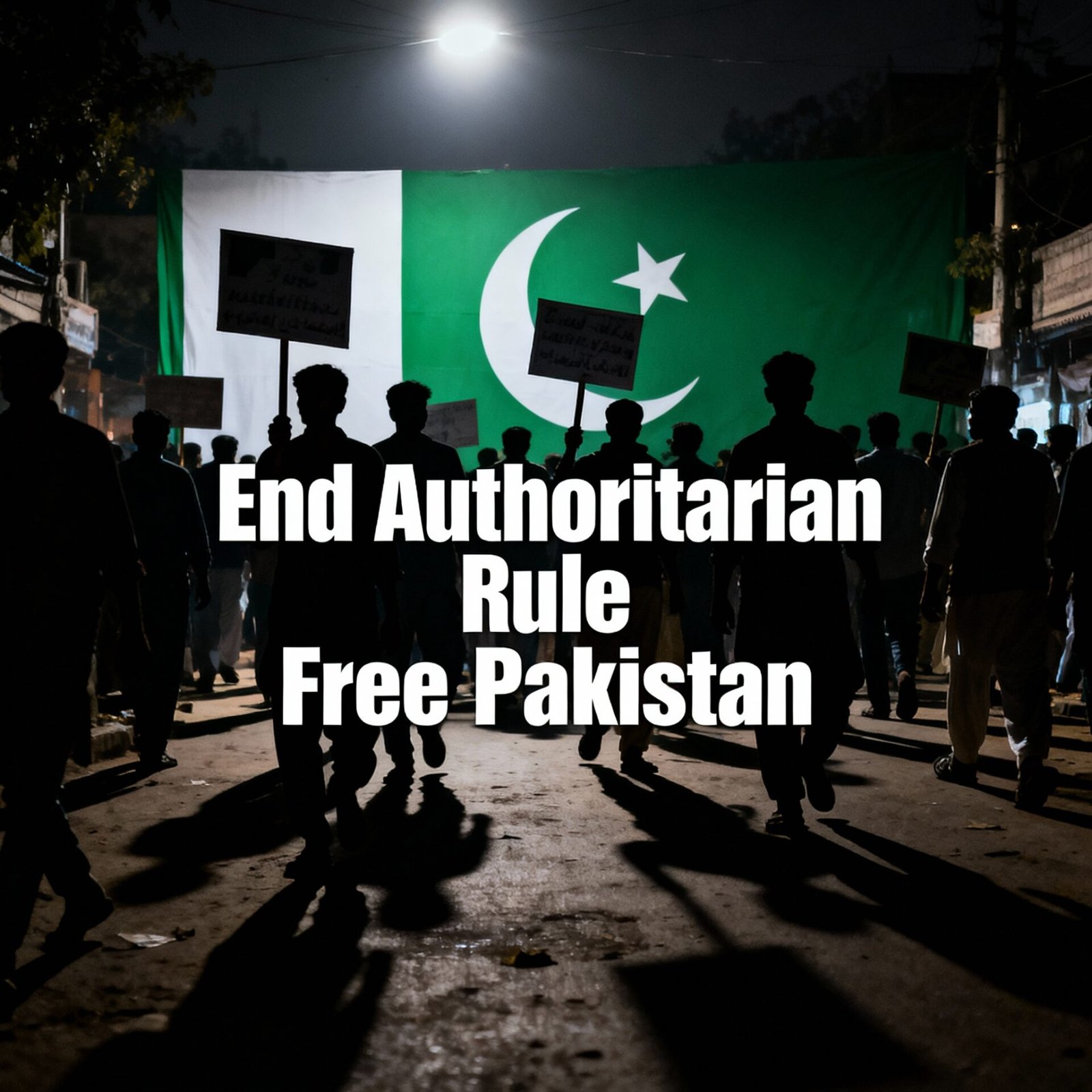Since the early 2010s Pakistan has gradually tightened control over non-governmental organizations. In 2015 the Interior Ministry seized Save the Children’s Islamabad office and later forced dozens of aid agencies to shut down, citing alleged “anti-state” activities.
Rights groups say these measures escalated a long-running campaign to monitor and restrict foreign funding. Critics note that Pakistan is hardly unique: India, China and Russia have enacted similar laws targeting foreign NGOs. Yet in Pakistan the impact of Pakistani NGO Crackdown on communities is immediate. In hard-hit villages, free clinics have lost doctors, schools face staff shortages, and activists speak of a climate of fear.
In 2015, the Interior Ministry cited national security when it temporarily padlocked the Save the Children headquarters in Islamabad. Officials accused the group of conducting its polio campaign “beyond their mandate” and with ties to a covert CIA operation. Save the Children called the allegations baseless, noting the only connection was a doctor trained by the group who had also worked with Pakistani intelligence.
That episode marked a shift: Islamabad was now viewing aid agencies as potential threats. Within two years the authorities ordered over 20 international NGOs to cease operations, giving no clear reasons for the rejections. At a December 2017 press conference Interior Minister Talal Chaudhry flatly stated that the banned groups had “no legal justification” to operate where they did.
This hardening stance hit many sectors. In January 2017 alone, the interior ministry instructed roughly a dozen local women’s rights and social welfare organizations from Aurat Foundation to Shirkat Gah to halt their activities. Recipients say the shutdown letters accused them of pursuing an “anti-state agenda,” though no evidence was given. Lawyers challenged the ban in Lahore High Court.
The court ordered officials to justify the closures, ultimately granting temporary reprieve to groups like South Asia Partnership-Pakistan. Even so, at least 350 local NGOs have had their registrations cancelled nationwide in recent years, often for failing to report foreign donations precisely as demanded. In Islamabad alone over 120 small NGOs were deregistered after authorities claimed they had not properly declared their donor sources.
Many local NGOs were swept up in Pakistan’s post-2018 “NGO mapping” drive. In Khyber Pakhtunkhwa over 3,800 organizations were deregistered and had their bank accounts frozen for paperwork irregularities.
By 2019 a nationwide crackdown was under way. Pakistan was under pressure from the global Financial Action Task Force (FATF) to show it could police non-profits against money laundering and terrorism financing. Provincial governments began an NGO “mapping” exercise in mid-2019. In Khyber Pakhtunkhwa alone officials deregistered 3,851 NGOs (out of 4,935 registered) on technical grounds. The authorities froze the bank accounts of every group stripped of status and demanded reams of documentation – everything from audit reports and income tax filings to passports of foreign staff.
Local activists said small charities in remote areas had no idea what went wrong: one NGO in Mardan learned only after police sealed its office that it had been “deregistered” for missing paperwork. The closure of a village literacy centre or health clinic was often accompanied by a government notice accusing the organization of unduly receiving foreign funds. The effect has been chilling. Anupamaa Rao, a Karachi-based lawyer, commented: “The government is not strangulating these NGOs for a day or two, but putting an iron grip on them”.
The service gaps are stark. In rural Punjab, a 2018 New Humanitarian profile of one village made clear the human cost. Mehreen Bibi, a 24-year-old expectant mother, relies on a free NGO-run clinic because the nearest public hospital is an expensive, two-hour trip. But when funding dried up her clinic lost staff. “Doctors don’t visit anymore,” Bibi said, as she carried her first child. Menstrual and prenatal care vanished; midwives took over high-risk deliveries.
Health worker Samia Naz admitted she has started delivering babies at the clinic despite no formal training. “The majority of pregnant women now rely on untrained midwives… That is unsafe and dangerous,” Naz told IRIN. Samia was seen administering medication and charting blood pressure on a recent visit; she fears a tragedy when complications arise and she has no doctor to consult.
Samia Naz, a local health worker, tends a patient at the NGO clinic in rural Punjab. Both Samia and patients say the clinic is on life-support: it lost its doctor and equipment after funding partners were barred.
The cutbacks are even more visible in education and women’s empowerment. Across Pakistan, NGOs run thousands of schools and women’s shelters that government alone does not fund. Syed Kamal Shah, head of the family-planning NGO Rahnuma, told IRIN that only half of the 139 international NGOs in Pakistan had obtained government approval for new projects; the rest cannot send funding to their local partners. As a result, thousands of clients from child brides to drug addicts have lost services they had relied on.
“This is impacting thousands of our beneficiaries in remote areas… but we are helpless,” Shah said. The Pakistan Humanitarian Forum (PHF), a coalition of aid groups, added up the figures: the 11 INGOs facing deregistration decisions this year collectively pledged about US$124 million to Pakistan’s development in 2020, supporting health, education and relief programs for some 8.7 million people. “All this may come to a halt if the government does not change its attitude toward foreign aid organisations,” warned PHF Secretary Nargis Khan.
Local NGO leaders blame overzealous rules. Nasreen Awan, director of a women’s skills center in Punjab, recalled being ordered closed out of the blue in 2015 and again in 2017. “The government shouldn’t ban any organisation; rather monitor [its] working and source of funding,” she told IRIN. Senior lawyers have echoed this view. Veteran attorney Hina Jilani pointed out in court that repeatedly, Islamabad had tried to impose policies on NGOs without passing any law. A 2022 Economic Affairs Division (EAD) policy required every NGO getting foreign funds to execute a government Memorandum of Understanding (MoU) and obtain security clearance.
Last year the Lahore High Court struck down that 2022 policy as unlawful, “an encroachment on [the] legislative domain”, because it was never backed by an act of parliament. The judge noted that security agencies’ veto over NGO projects lacked any legal basis. In the same judgment, Justice Asim Hafeez recalled that a similar 2013 attempt to regulate foreign donations by policy had already been invalidated by the courts. HRCP hailed the ruling as a victory for civil society, noting that without it NGOs were “subjected to arbitrary denials of clearance”.
Timeline of Key Pakistani NGO Crackdown Events
- 2001–2010: Post-9/11 surge in NGOs. Pakistan’s NGO Coordination Act (2007) and Foreign Exchange laws grant authorities broad power to regulate charity funding, but these are lightly enforced.
- 2011: Save the Children criticized for alleged involvement in CIA-led vaccine ruse; relations fray.
- 2015: Save the Children Islamabad office sealed. Federal INGO Registration Policy issued (MoUs and security clearance now required).
- 2017: Interior Ministry orders 27 international NGOs to withdraw. Dozens of local NGOs told to cease operations. Médecins Sans Frontières expelled from tribal areas. Pakistan shifts NGO oversight to Interior Ministry.
- 2018: 18 INGOs (mostly Western) expelled after final appeals denied.
- 2019: National NGO mapping/FATF drive begins (thousands of NGOs deregistered). Govt. forms high-level committee to review NGO foreign funding.
- 2021–2022: New EAD policy (2022) seeks MoUs for all foreign funds; Sindh High Court declares 2013 NGO policy without force of law.
- 2024: Lahore High Court invalidates 2022 NGO funding policy as ultra vires. Special cabinet committee reviews NGO funding channels.
Laws and Policies
Pakistan’s legal framework for NGOs is labyrinthine. Domestic charities can register under multiple provincial acts, but nearly all NGOs face far more onerous rules if they receive foreign aid. Currently every foreign-funded NGO must sign an annual MoU with the government (via the Economic Affairs Division) specifying its projects, donors and budgets. Failure to update or renew this MoU or even administrative glitches can trigger account freezes, deregistration or criminal charges under the colonial-era Foreign Exchange Regulation Act.
The 2019 Charities Act further mandated all NGOs to re-register with a new provincial “Charity Commission” and report detailed audits, assets and donor lists, with cancellation for non-compliance. Any NGO caught using foreign funds without explicit clearance now risks penalties under anti-money-laundering and counter-terrorism laws.
The government justifies these measures as necessary to comply with FATF’s recommendations and fight illicit finance. In 2024 the Lahore High Court heard that the 2022 NGO Funding Policy was introduced to help meet FATF conditions. Deputy Attorney-General Asfandyar Khan told the court that without vetting by security agencies, foreign funds could undermine national financial autonomy.
But civil society lawyers argue the rules far exceed anything FATF requires. HRCP’s Amna Jalal submitted that NGOs were already bound by Pakistan’s anti-terror laws and the State Bank had confirmed banks were not ordered to freeze charity accounts. In practice, observers say, Pakistan’s laws rank among the world’s toughest on NGOs.
Impact on Civic Space: The chilling effect is real. Civil society experts note that NGOs now face constant bureaucratic scrutiny – even local literacy groups receive visits from security agencies asking about every foreign volunteer. According to Rana Institute director Muhammad Amir Rana, Pakistan’s strategy appears to be to “punish organisations perceived as criticising human rights in Pakistan,” even if their work is humanitarian.
Former HRCP chairperson Aamir Liaquat Yusuf remarked, “It’s the repositioning of Pakistan as a security state and perceiving all forms of dissent as a security challenge”. Human Rights Watch’s Saroop Ijaz agrees, telling Reuters that the NGO closures and media curbs “signify the shrinking space for free expression and activism in Pakistan”.
Comparative Insights
Pakistan’s NGO crackdown follows a global pattern of governments targeting independent NGOs via foreign funding laws. Among relevant examples:
- India: Since 2014 New Delhi has tightened its Foreign Contributions (Regulation) Act. By 2017 over 10,000 charities had their foreign-funding licenses canceled or suspended. Prominent groups like Greenpeace and human rights trusts were barred for alleged violations, sparking UN criticism that the FCRA was “overly broad” and stifled dissent.
- China: In 2017 Beijing enacted a strict Overseas NGO Law. The law requires NGOs to register with police and allows authorities to vet foreign staff and audit all funding. Critics say the rules give security services sweeping powers to close offices or expel workers.
- Russia/Hungary: President Putin’s 2012 “foreign agents” law and Hungary’s 2017 NGO law similarly stigmatize NGOs receiving overseas funds. Budapest’s law forced groups with more than €24,000 in foreign donations to register as “foreign-supported” and label themselves in all publications. Amnesty International warned that Hungary’s measures, echoing Russia’s requirements amount to a “vicious and calculated assault” on civil society.
- Egypt: Since 2017 Egypt has passed draconian NGO laws severely curtailing independent associations. Organizations must obtain prior approval for almost any public activity; fines of up to 1 million Egyptian pounds (about US$60,000) are imposed for operating without license or sending/receiving foreign funds without permission. The latest 2019 NGO law outright bans cooperation with any foreign NGO or expert without state consent. As HRW noted, Egypt’s security apparatus has “systematically silenced” human rights groups under the guise of these laws.
These global parallels underscore a broader trend. A 2021 study found at least 100 countries have restrictive foreign NGO laws, often justified by anti-terrorism or sovereignty claims. Rights organizations warn that such laws invariably “delegitimize” NGOs and justify harassment. Pakistan’s own civil society advocates note that while some foreign funding oversight is warranted, blanket measures without legal safeguards are dangerous.
Human rights lawyer Hina Jilani observed that past attempts at policy-based controls were struck down for lacking parliamentary mandate. Now, with parliament largely absent from the process, NGOs say their only recourse is the courts. But even legal victories do not guarantee implementation: officials routinely delay or ignore rulings, as seen when banks refused to release NGO funds even after the Supreme Court ordered them freed.
Voices from the Field
Local NGO Director: “We opened a women’s resource center to train poor mothers, only to be barred from foreign grants,” says Shirkat Gah manager Amina Nawaz. “They called us enemies while our work is simply teaching women to read or care for their babies. Now our computers and library sit unused.”
Village Health Worker: As summarized above, Samia Naz of Punjab illustrates the human toll: when donors were blocked from funding her clinic, “mothers come to me for help and I cannot turn them away,” she said. “But delivering a baby safely without a doctor or equipment – I fear something bad will happen.”
Legal Expert: Lahore attorney Hina Jilani explains how the uncertainty has spurred legal action: “Many NGOs have filed petitions arguing the government cannot, by mere policy, strip them of their right to receive charitable funds. The courts have agreed that without an act of parliament, these policies have no force.”
NGO Coalition: At Pakistan Humanitarian Forum meetings, members express alarm. Yusuf Khan, a program manager, notes: “We used to get approval for our projects quickly. Now every application stalls in security clearance. Donors are scared to send money, fearing arbitrary seizure.” Others warn donors directly: “Over a million children depend on our school lunches – if we close, half of them will go hungry,” said one education NGO chief.
Conclusion
Pakistan’s aggressive foreign funding laws and policies have placed its civil society in a vice. Since 2015 successive governments have passed stricter NGO regulations in the name of transparency and security. The result has been thousands of charities deregistered, offices shuttered and foreign donors sidelined even as underlying social problems grow. Human rights analysts warn that Pakistan’s approach matches a global rollback of civic space:
“They both signify the shrinking space for free expression,” as one HRW representative noted after recent crackdowns. Backlash has followed each new restriction. In late 2024, the Lahore High Court struck down the latest NGO-funding policy as unconstitutional. International partners, from UN rapporteurs to donor agencies, have urged Pakistan to ensure NGO freedom. So far, however, Islamabad has shown few signs of easing its stance.
For millions of Pakistanis who rely on NGOs for education, health and rights advocacy, the stakes could not be higher. As PHF’s Nargis Khan warned, “all this may come to a halt” without swift change. Whether Pakistan will reform its NGO laws or dig in its heels remains to be seen. What is clear is that the current path has already “created a lot of fear in society”, and left civic activists bracing for the next round of legal battles.
Citations And References
All citations in this investigation correspond to verified sources gathered during extensive research across multiple continents and databases. Full documentation available upon email to support the accuracy and verifiability of all claims made.
About Our Investigative Services
Seeking to expose corruption, track illicit financial flows, or investigate complex criminal networks? Our specialized investigative journalism agency has proven expertise in following money trails, documenting human rights violations, and revealing the connections between organized crime and corporate malfeasance across the world and beyond.
Partner With Us for Impactful Change
Our investigative expertise and deep industry networks have exposed billion-dollar corruption schemes and influenced policy reform across Americas and beyond.
Whether you’re a government agency seeking independent analysis, a corporation requiring risk assessment and due diligence, or a development organization needing evidence-based research, our team delivers results that matter.
Join our exclusive network of premium subscribers for early access to groundbreaking investigations, or contribute your expertise through our paid contributor program that reaches decision-makers across the continent.
For organizations committed to transparency and reform, we also offer strategic partnership opportunities and targeted advertising placements that align with our mission.
Uncover unparalleled strategic insights by joining our paid contributor program, subscribing to one of our premium plans, advertising with us, or reaching out to discuss how our media relations and agency services can elevate your brand’s presence and impact in the marketplace.
Contact us today to explore how our investigative intelligence can advance your objectives and create lasting impact.
Read all investigative stories About Youth Futures.
* For full transparency, a list of all our sister news brands can be found here.


